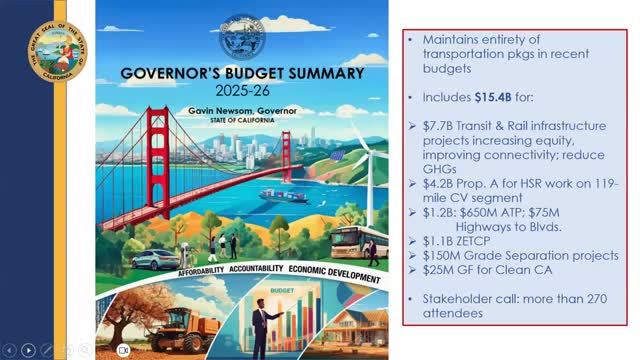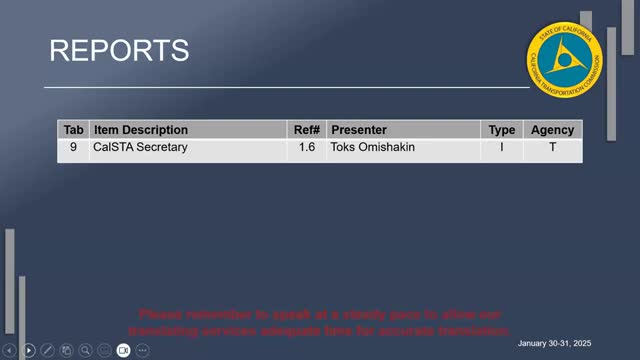Article not found
This article is no longer available. But don't worry—we've gathered other articles that discuss the same topic.

Votes at a glance: California Transportation Commission, Jan. 30, 2025

CTC, Caltrans brief commissioners on state budget outlook and 2026 fund‑estimate process amid federal uncertainty

Sacramento-area pilot funds historic Chinatown planning in Marysville through Engage, Empower & Implement program

Caltrans and CTC emphasize evacuation, signal restoration after Southern California wildfires; initial damage estimates near $100 million

